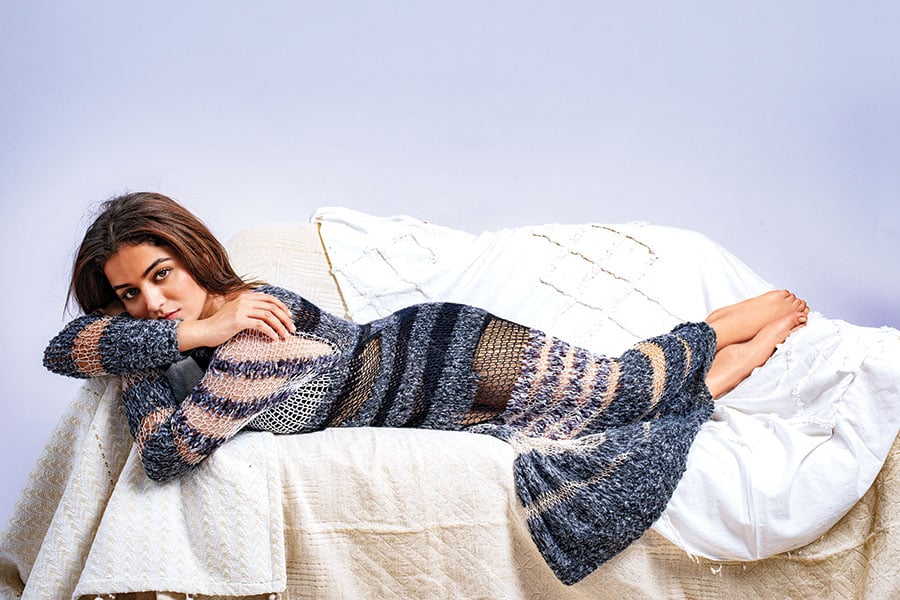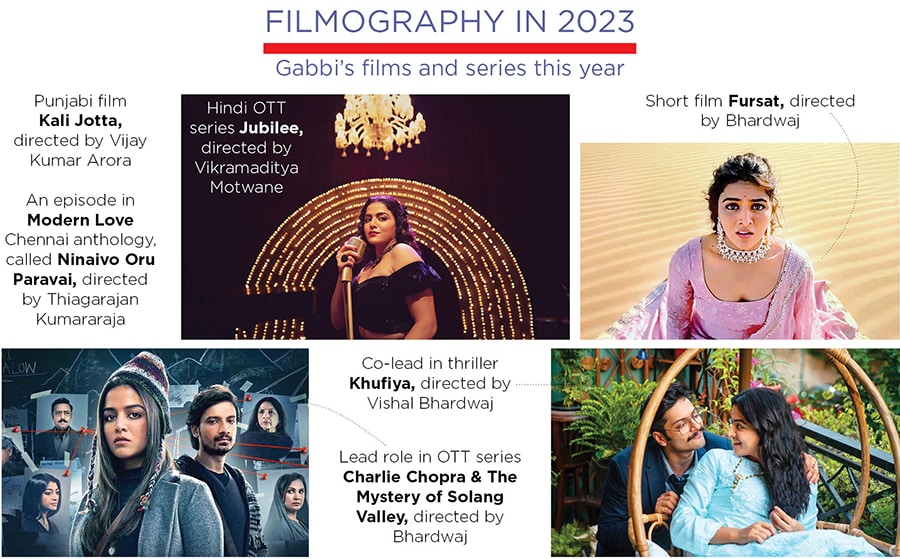
Wamiqa Gabbi's day in the spotlight is here. And she's ready for it
Wamiqa Gabbi has been in front of the camera since she was a toddler. Now, with a string of strong performances across genres and languages, she has sealed her position among actors to watch out for
 Actor Wamiqa Gabbi; Image: Bajirao Pawar for Forbes India;
Hair, Makeup & Styling: Wamiqa Gabbi
Actor Wamiqa Gabbi; Image: Bajirao Pawar for Forbes India;
Hair, Makeup & Styling: Wamiqa Gabbi
It was something like a life coming full circle moment.
Wamiqa Gabbi was nine years old when she first saw Sanjay Leela Bhansali’s Devdas (2002). She became obsessed with the opulence of the film, the sophistication of its sets, and the graceful dance sequences. She was also learning kathak at the time and performed Madhuri Dixit’s ‘Kaahe Chhed Mohe’ in numerous dance competitions in her hometown Chandigarh. In subsequent years, as she started working as an actor, she was sure that they didn’t make films like Devdas anymore. Rather, they didn’t have beautifully choreographed mujra sequences in films anymore.
So, almost 20 years later, when she performed a mujra as part of the introduction sequence of her character Niloufer in Vikramaditya Motwane’s Jubilee, her joy knew no bounds. The OTT series, which is based on the emergence of the Hindi film industry in post-Partition India, released to rave reviews this year. Gabbi’s portrayal of Niloufer—a fiery and independent-minded courtesan who chases her ambition of becoming an actor—was also noticed, making Jubilee one of the biggest hits of her career so far.
Motwane says Gabbi not only understands the nuance and emotion that a director wants, but also has a “gorgeous” on-screen presence. He remembers how she made notes in a little notebook during the shoot to understand the background of the character. “That’s very helpful for an actor when you’re trying to create a sense of story,” he says.
Aparna Purohit, head of originals, India and SEA, Prime Video, the platform on which Jubilee was streamed, agrees that Gabbi embodied Niloufer to an extent where it was impossible to imagine anyone else in that role. “Months after the show’s release, Wamiqa continues to be synonymous with Niloufer, a testament to her remarkable performance,” she says.











